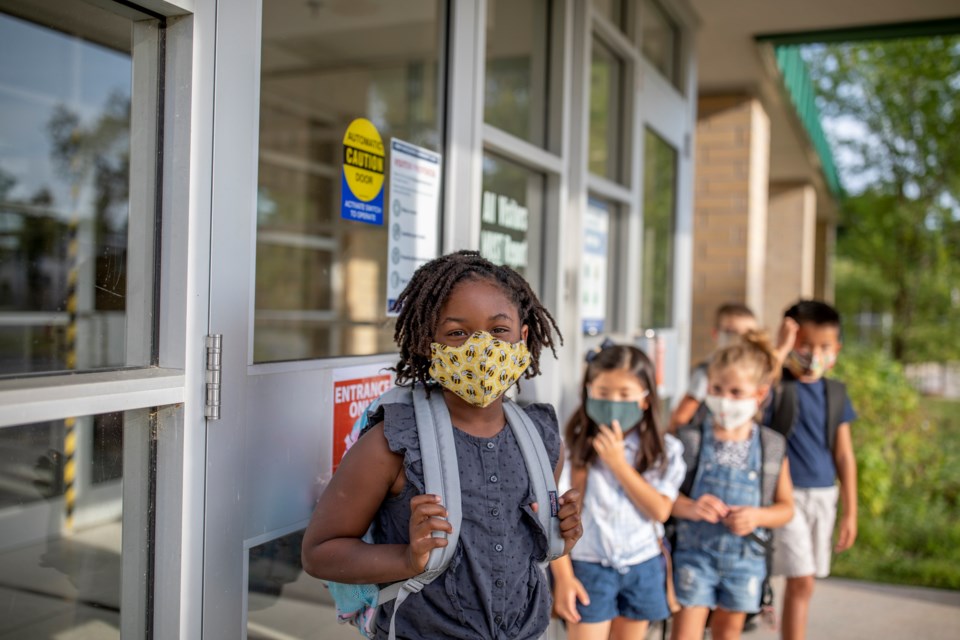This is no time to give in to COVID-19.
It’s understandable that after two years, everyone is tired of being afraid, staying home, wearing masks and queueing up for rounds of vaccines and tests.
With the — as expected — and breakthrough infections affecting the vaccinated, a spirit of resignation threatens to take hold.
Some are even suggesting it would be best to , in the same way parents of yesteryear used to and be done with it.
They had no idea their “chickenpox parties” would ultimately for many later in adulthood.
Omicron’s impact
Even if Omicron infections are around the long-term consequences of COVID-19.
Further, the impact of a huge wave of any infection is severe, even when it is mild for many. We are seeing the devastating effects of , not only in health care and long-term care, but also in businesses and schools that can’t run properly or in some cases at all.
As researchers in molecular virology and viral immunology, we are here to say in no uncertain terms that it would be wrong to give up now.
Vaccines have helped us to avoid near certain disaster during the current Omicron wave. The without them.
Already, we know that , is shockingly common among COVID-19 patients, with symptoms affecting as many as one in three. We are also seeing some evidence that children are after COVID-19. Those are not risks we can afford, either.
Our society may have become complacent about infectious diseases, . Here in Canada, we have been lucky to live in a time when that almost no other public health measures have been necessary to protect us from infections like smallpox, polio and tetanus that have plagued humanity for most of its natural history.
Pandemics have always . Cholera led to sewers and clean water. Yellow fever and influenza pandemics gave rise to the concept of public health.
Our new “normal” can be much healthier, with only the most subtle of changes.
A healthier ‘normal’
Last year there was , and the common cold went on hiatus because COVID-19 precautions also happened to provide a barrier to those familiar infections. The near absence of influenza probably saved about alone, and those benefits can continue.
If we normalize during peaks of influenza or other seasonal infections, we can save thousands of lives globally, even after the threat of COVID-19 recedes.
We learned early in the pandemic to wash our hands better and more frequently, which protects us from many forms of infection. Let’s keep it up. Likewise, improvements to building ventilation are long overdue and will continue to benefit our collective health going forward.
We have learned to stay home when we are sick, perhaps finally as if it were somehow more productive than staying away from the workplace. It isn’t, especially when one outbreak can pull down a whole organization.
Now, there are much better ways to work remotely for those whose jobs permit it. The requirement to isolate when ill has also renewed public discussion around the need for improved paid sick leave policies to support vulnerable workers. Adopting these policies would improve the lives of many in the years to come.
COVID-19 has exponentially raised public awareness of infection control due to its constant intrusion into our everyday lives over the past two years. That can pay off in other ways, if we decide to take advantage of all the tools we have and lessons we have learned out of necessity.
All of this is certainly not to say COVID-19 is good. Far from it. But we can benefit from what we have learned so far, and we certainly should not give up now.
We have proven, effective tools. Using these tools effectively can keep us healthy, protect the most vulnerable members of our communities, allow businesses to operate safely and accelerate our return to “normal.” Simply being tired of the pandemic is not reason to let it burn through the population.
![]()
Karen Mossman receives funding from the Canadian Institutes for Health Research and the Natural Sciences and Engineering Research Council.
Matthew S Miller receives funding from the Canadian Institutes of Health Research, the New Frontiers Research Fund, the Natural Sciences and Engineering Council of Canada, and the Ontario Research Fund.


